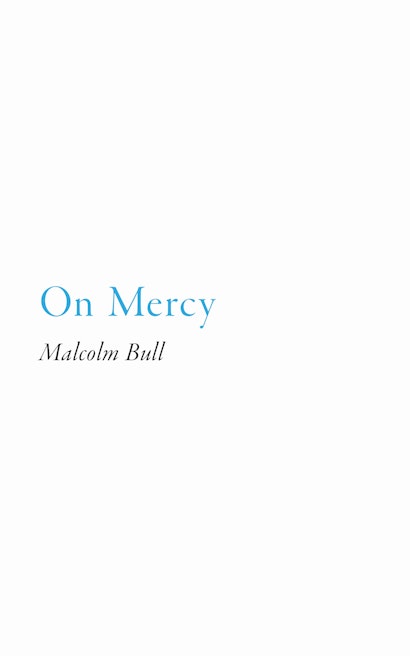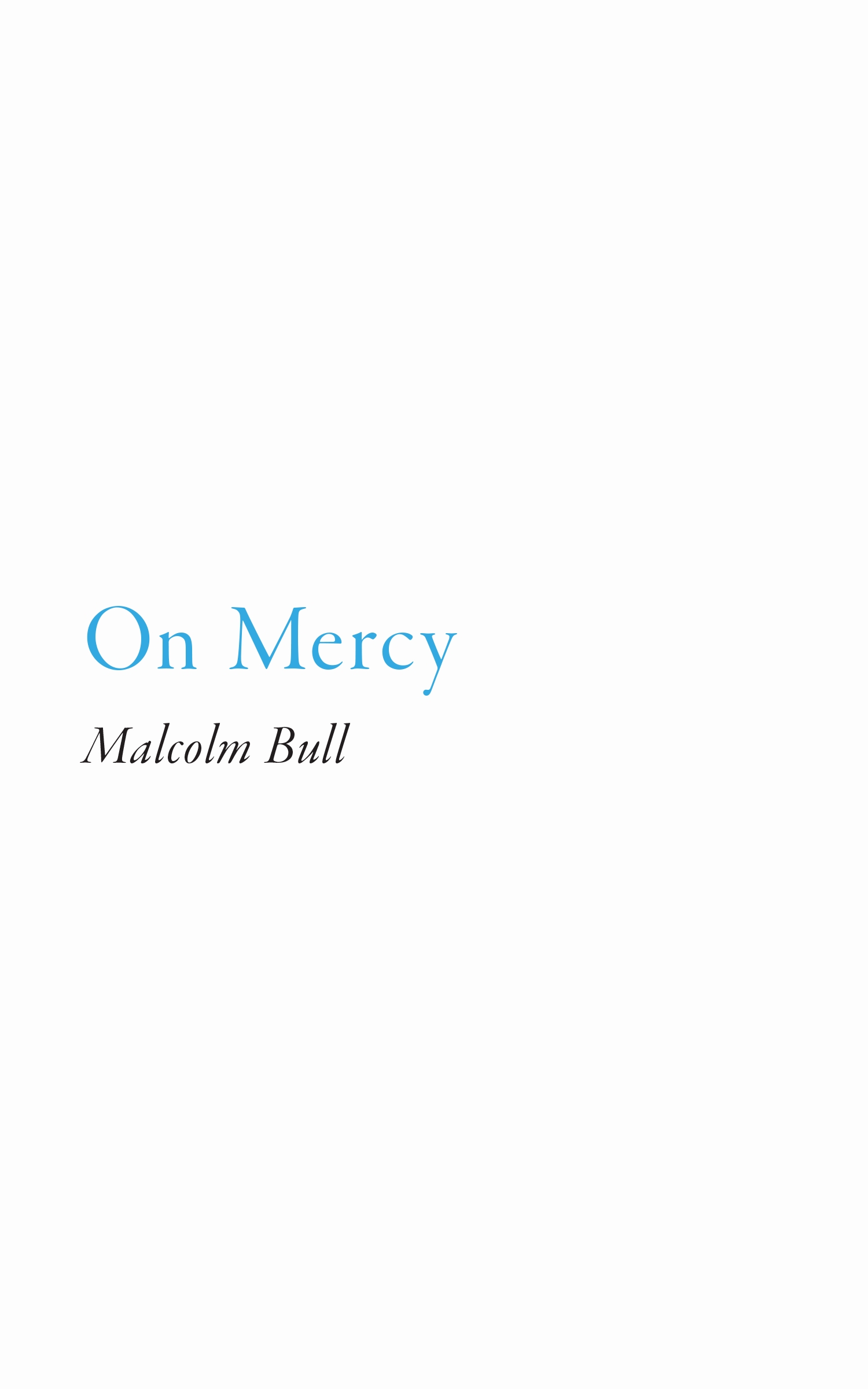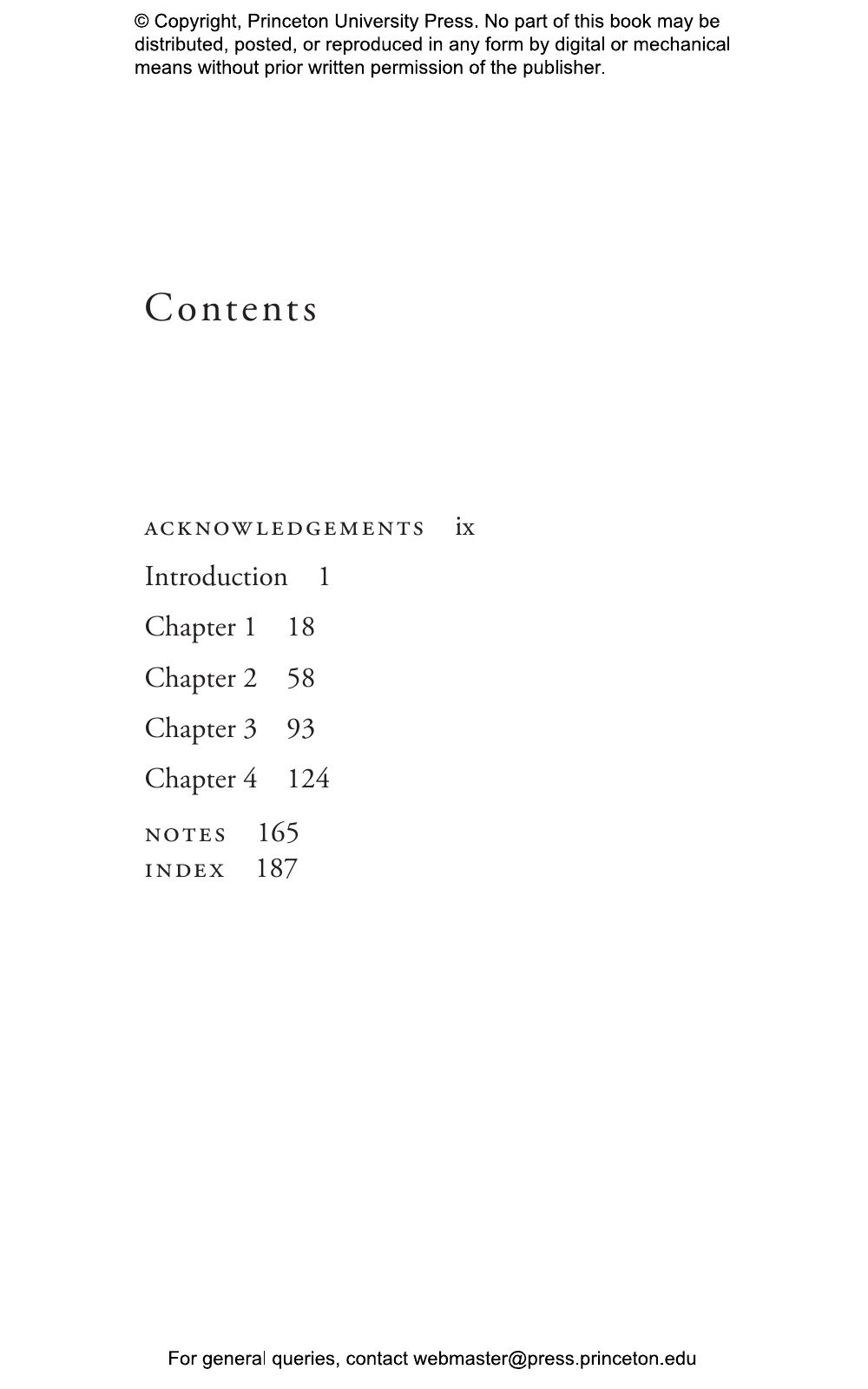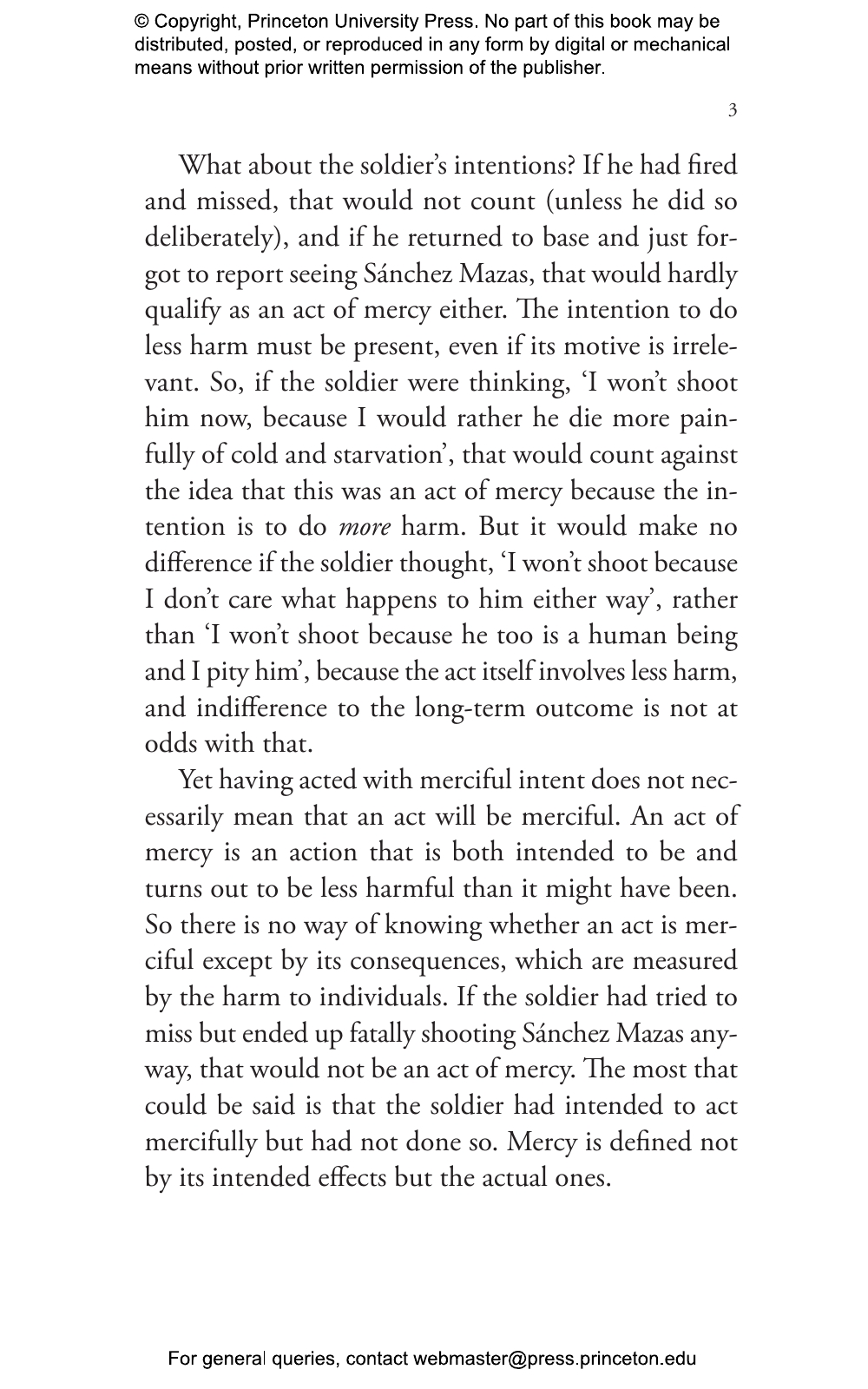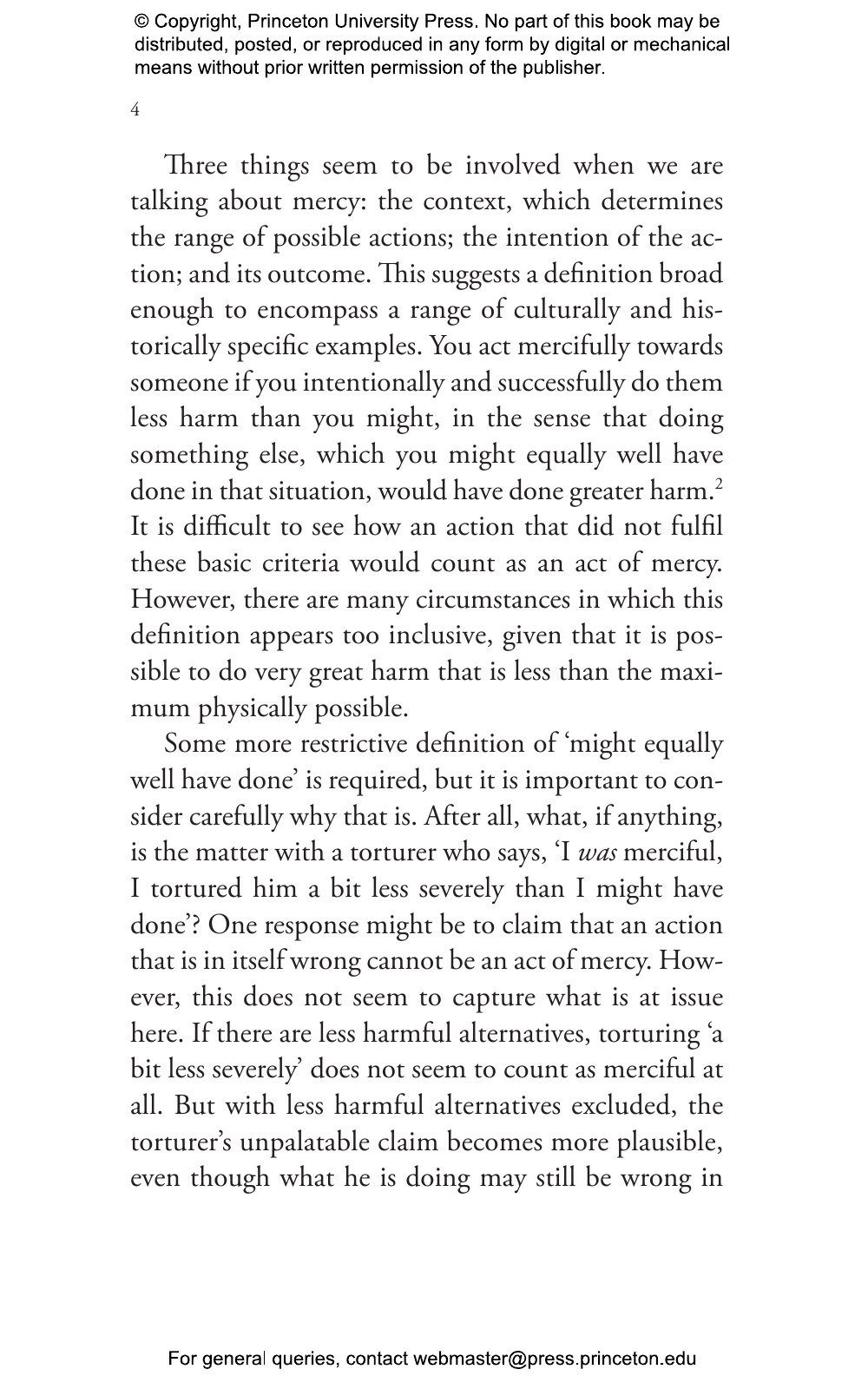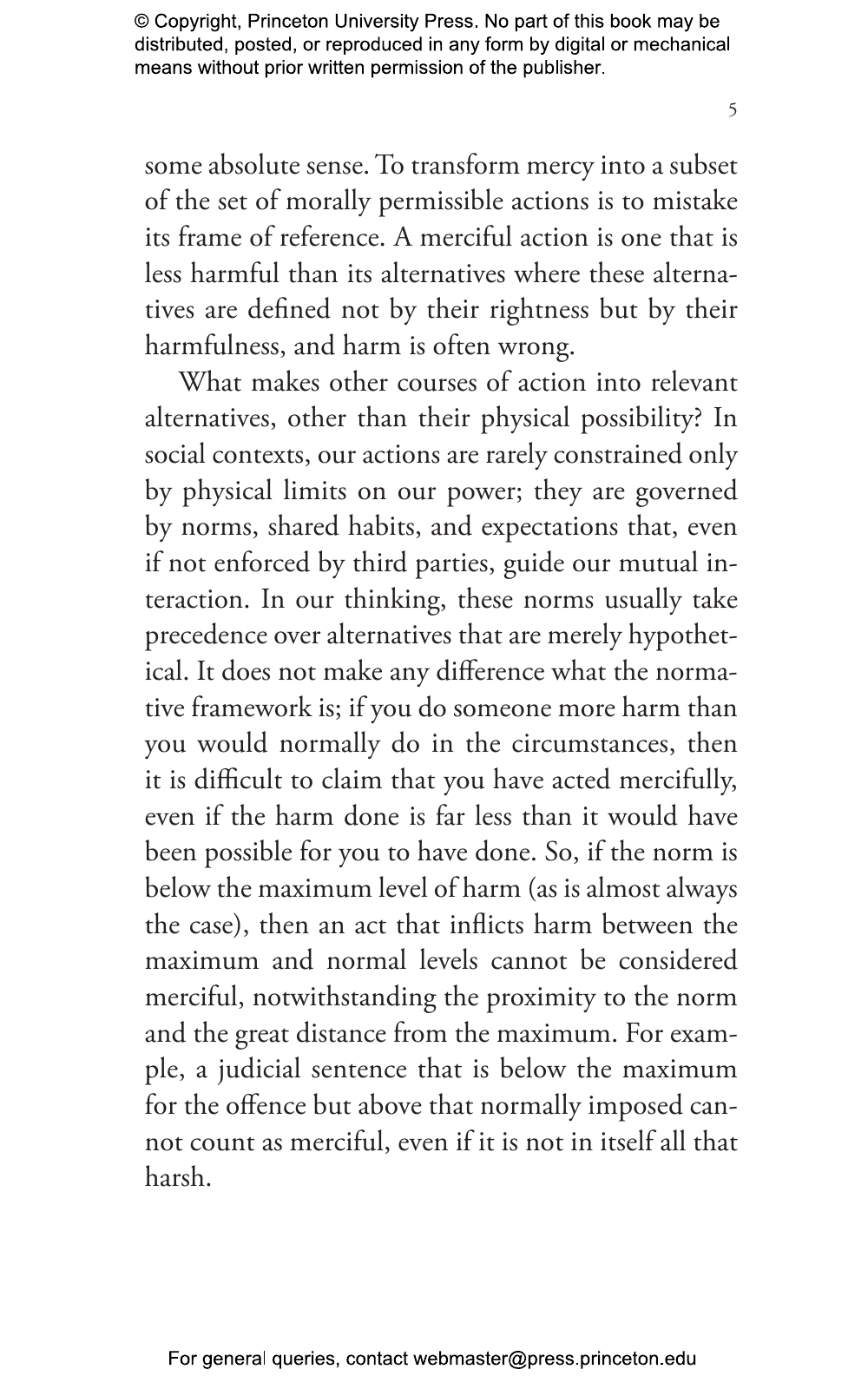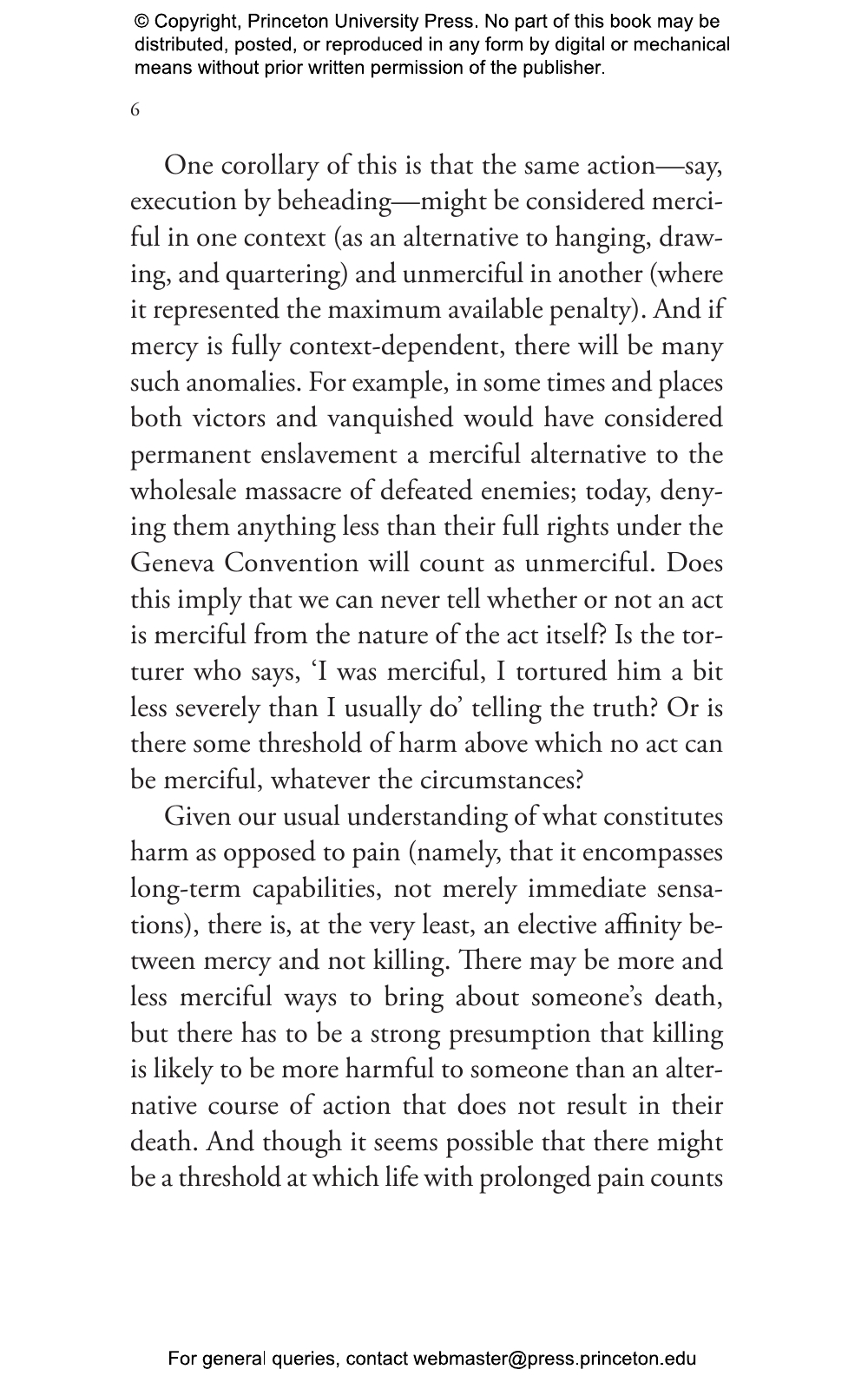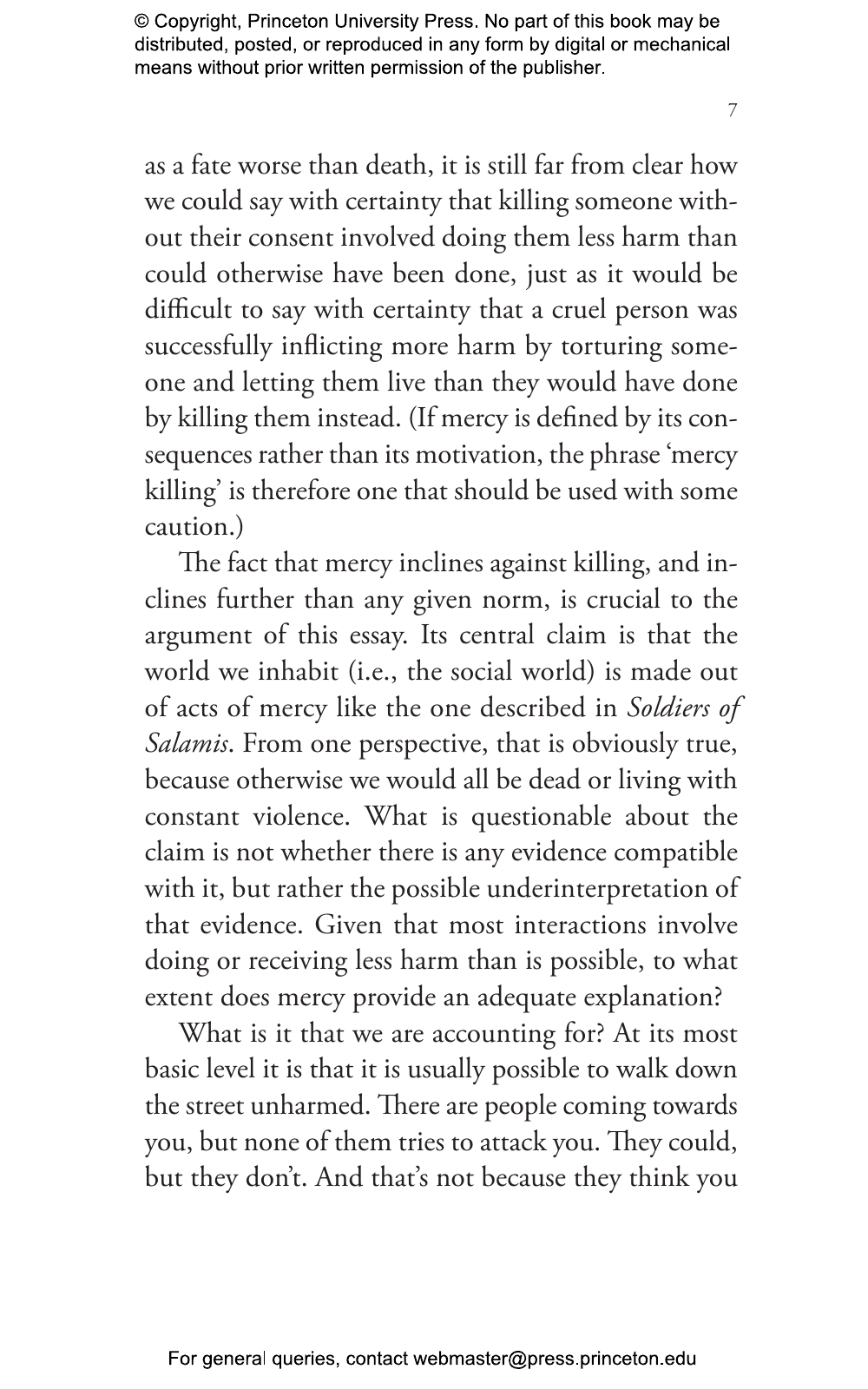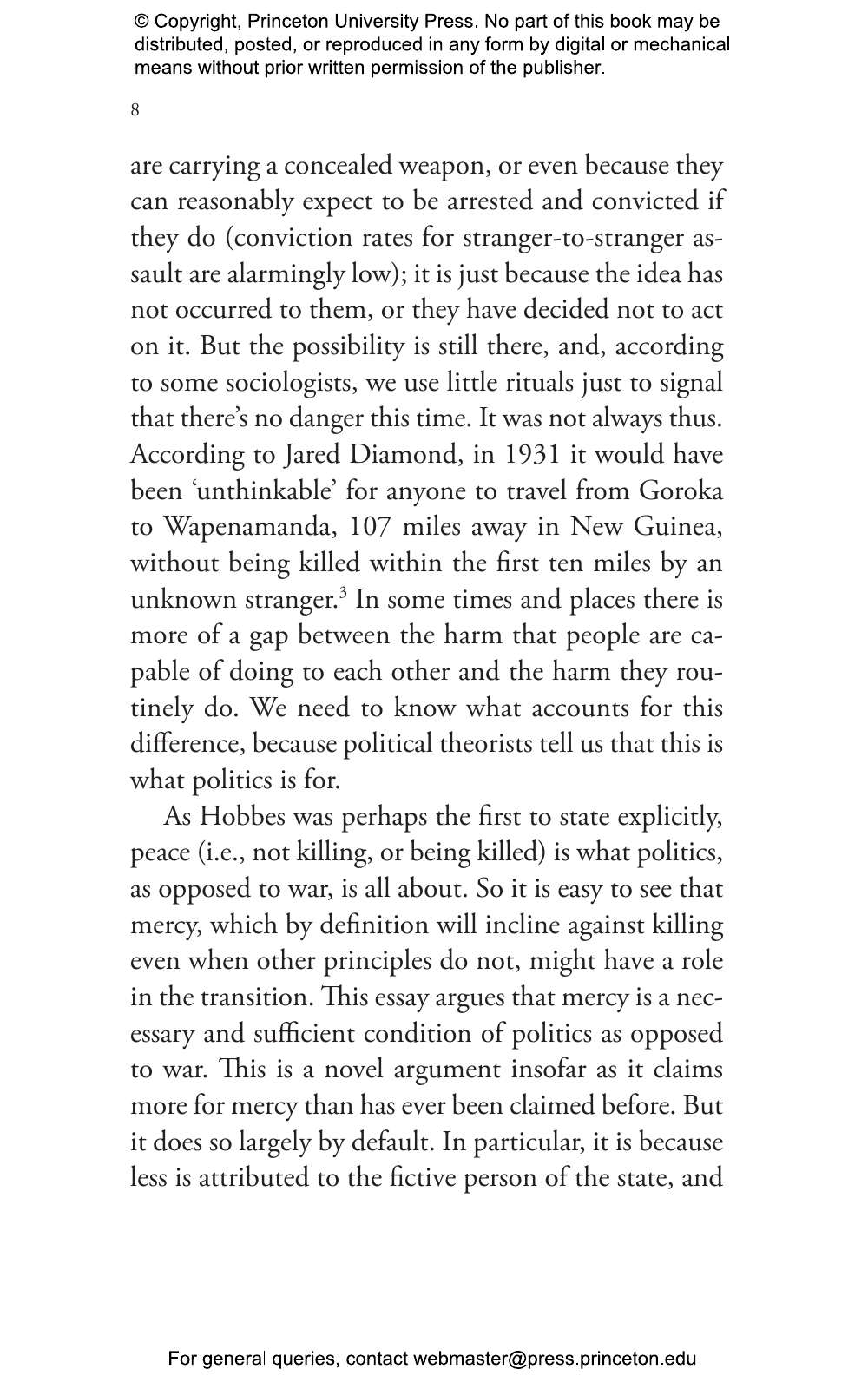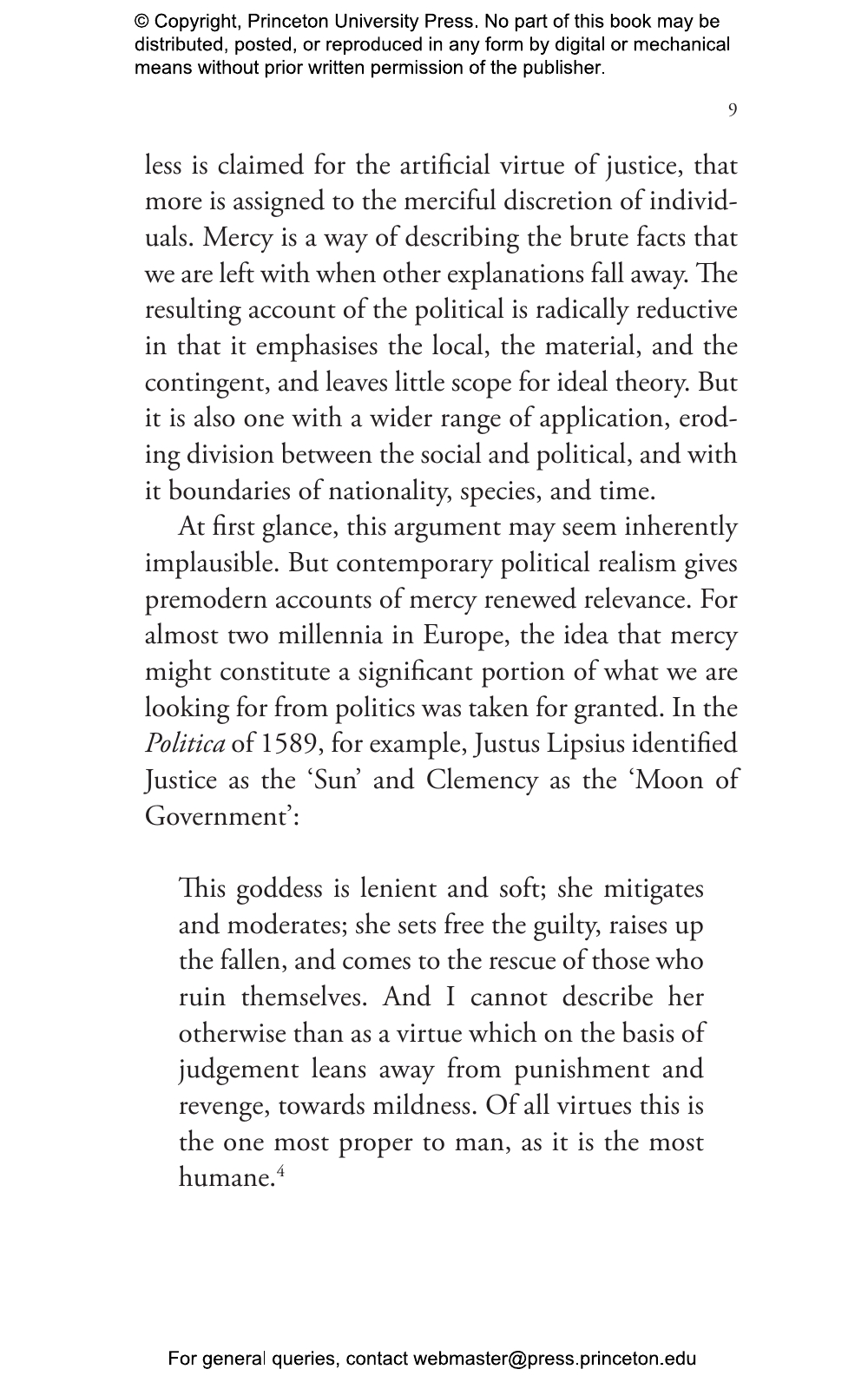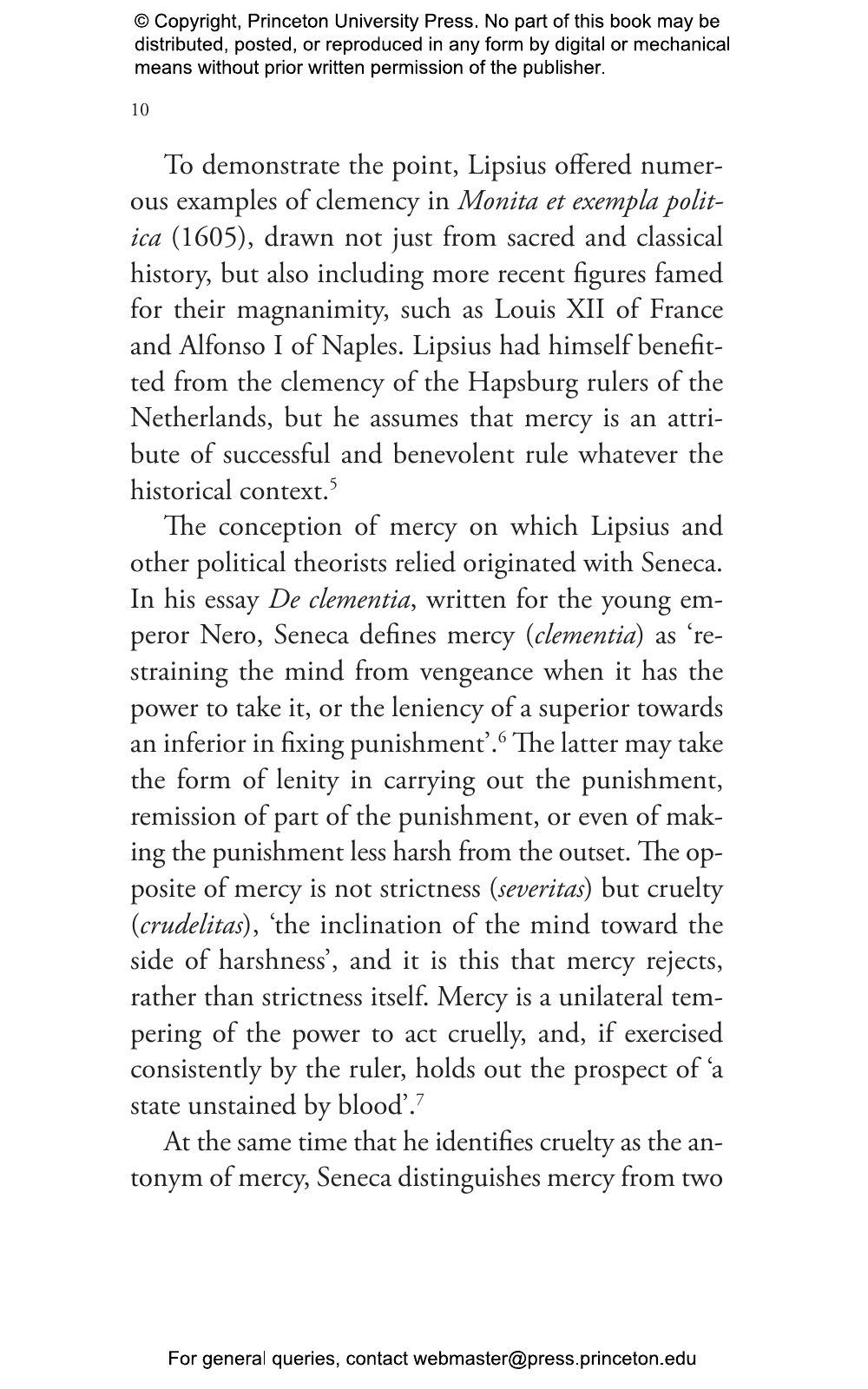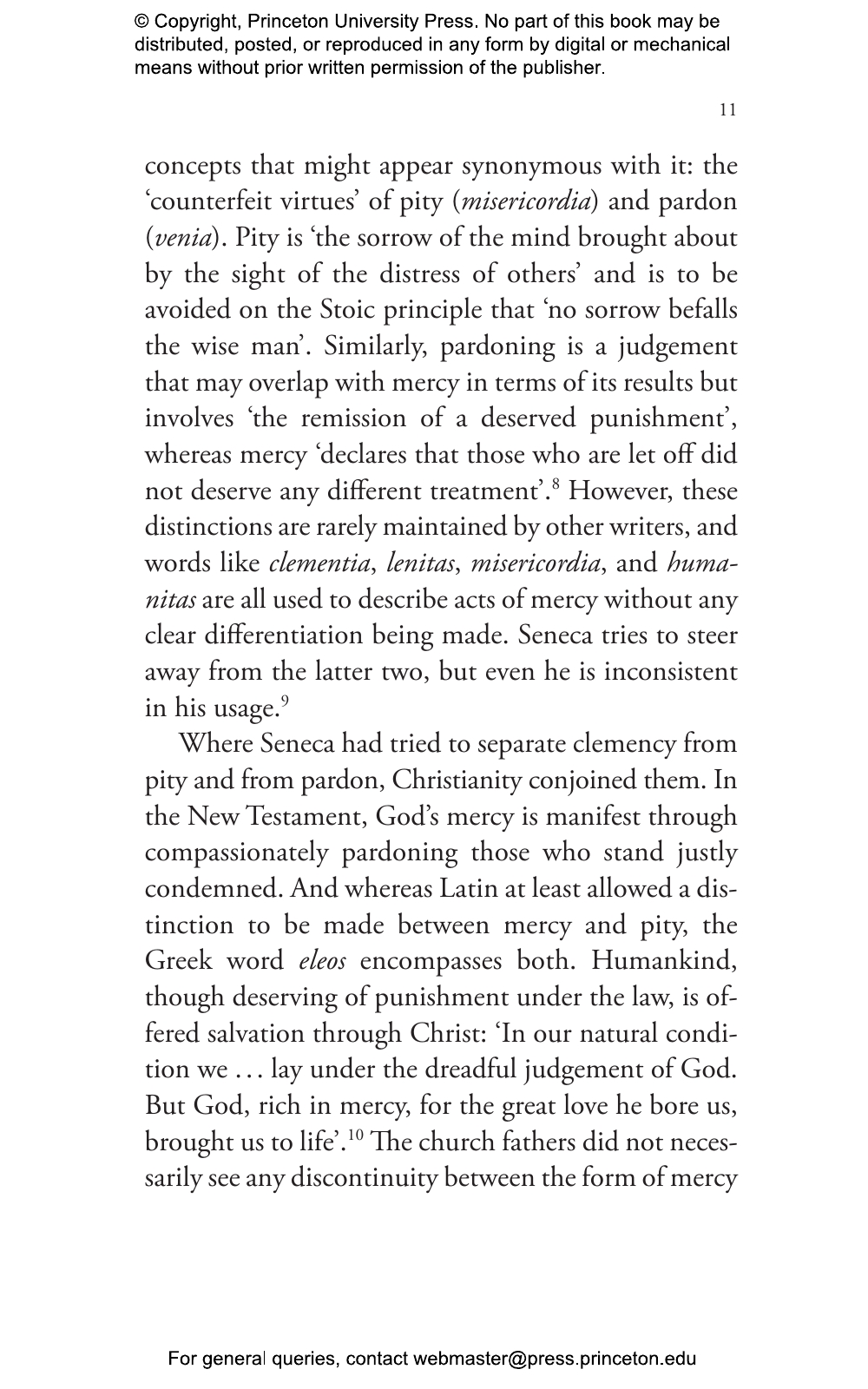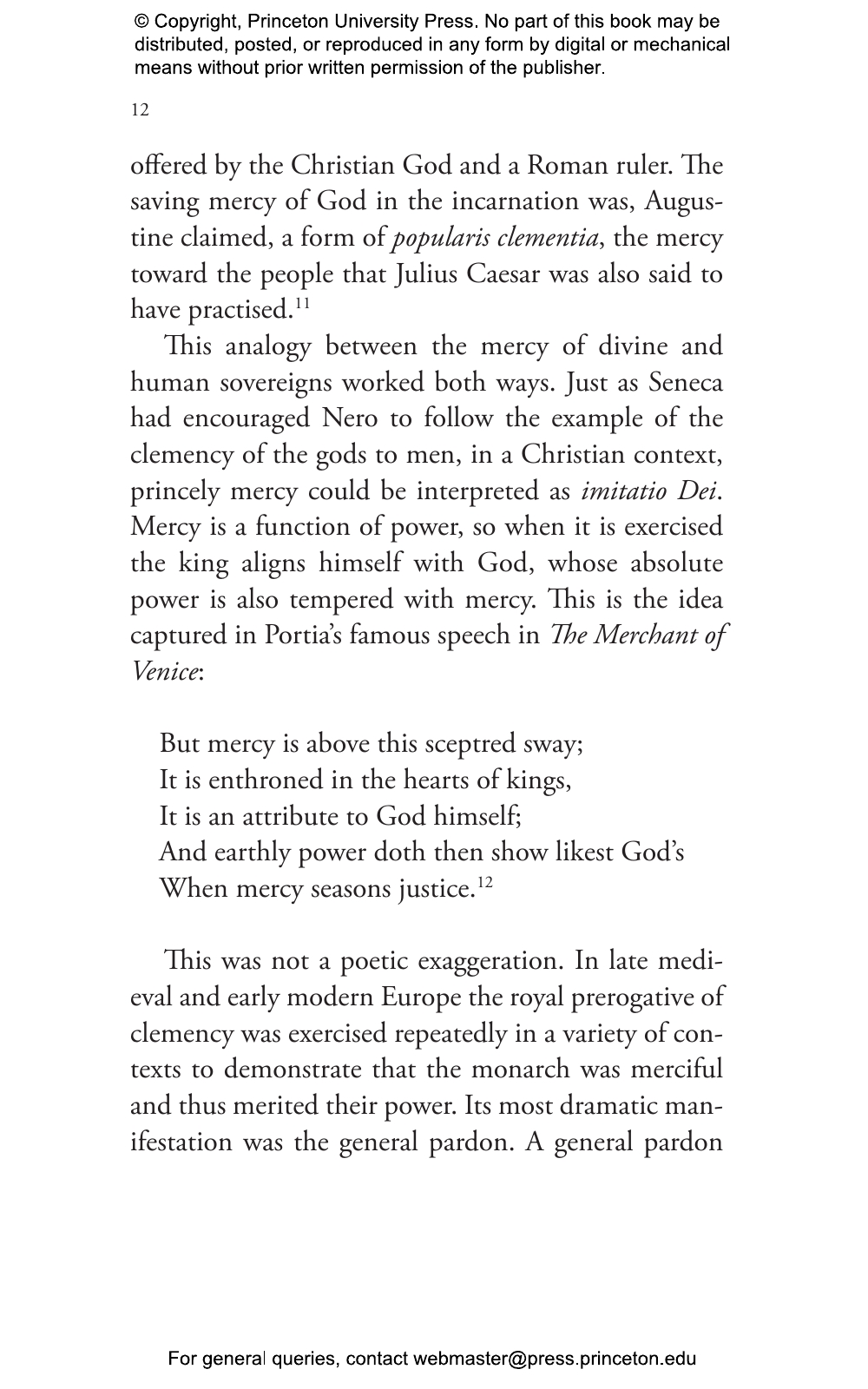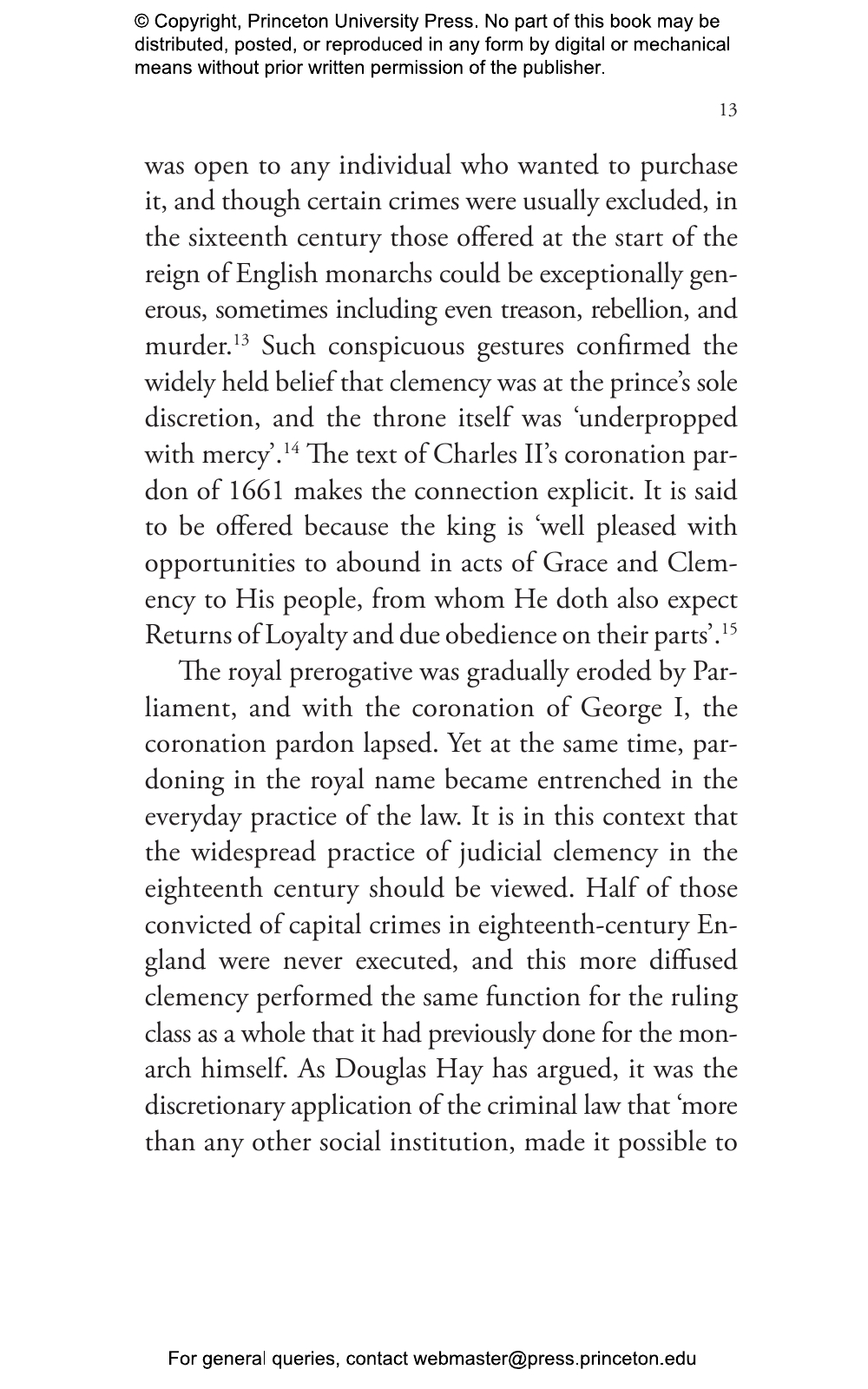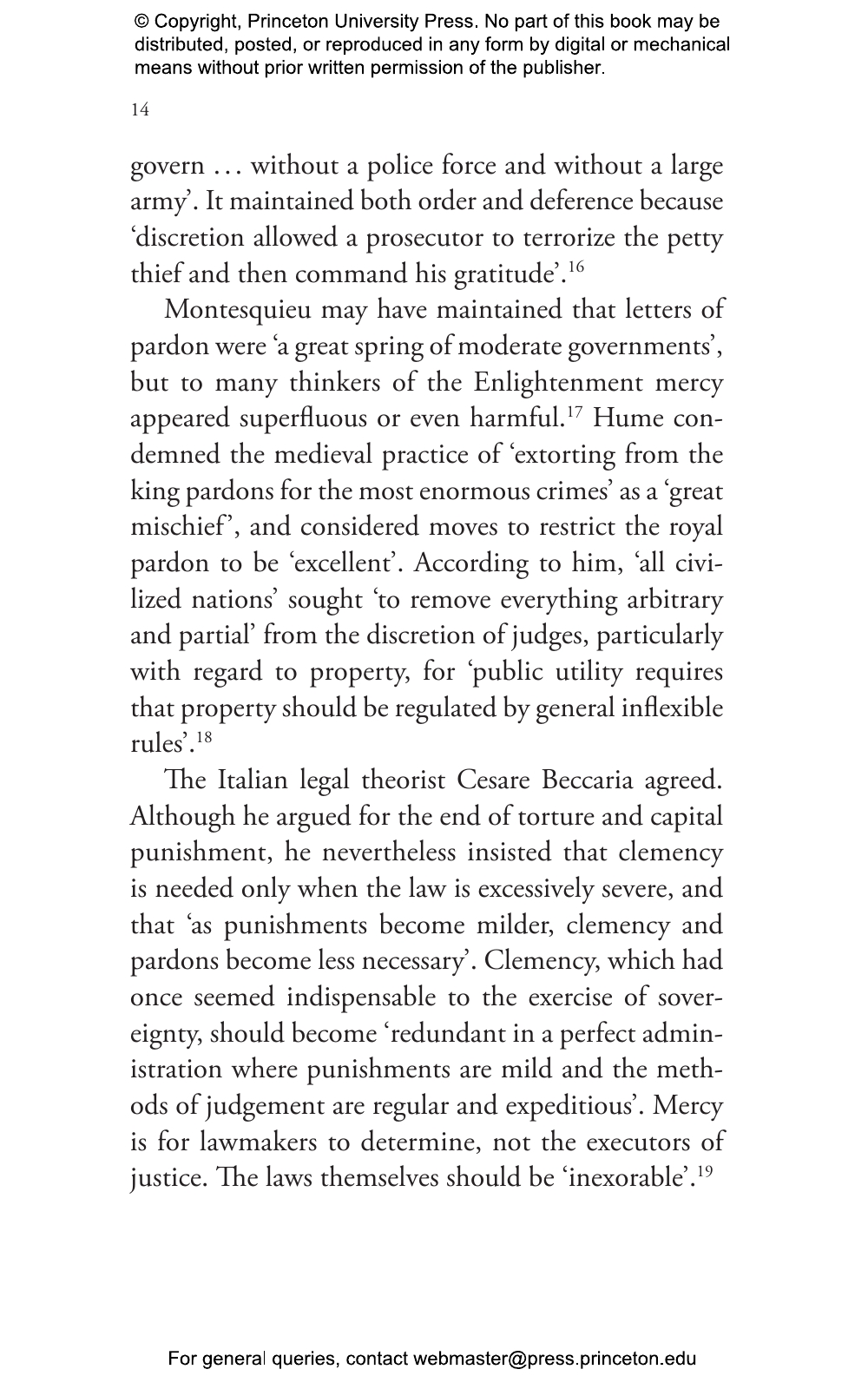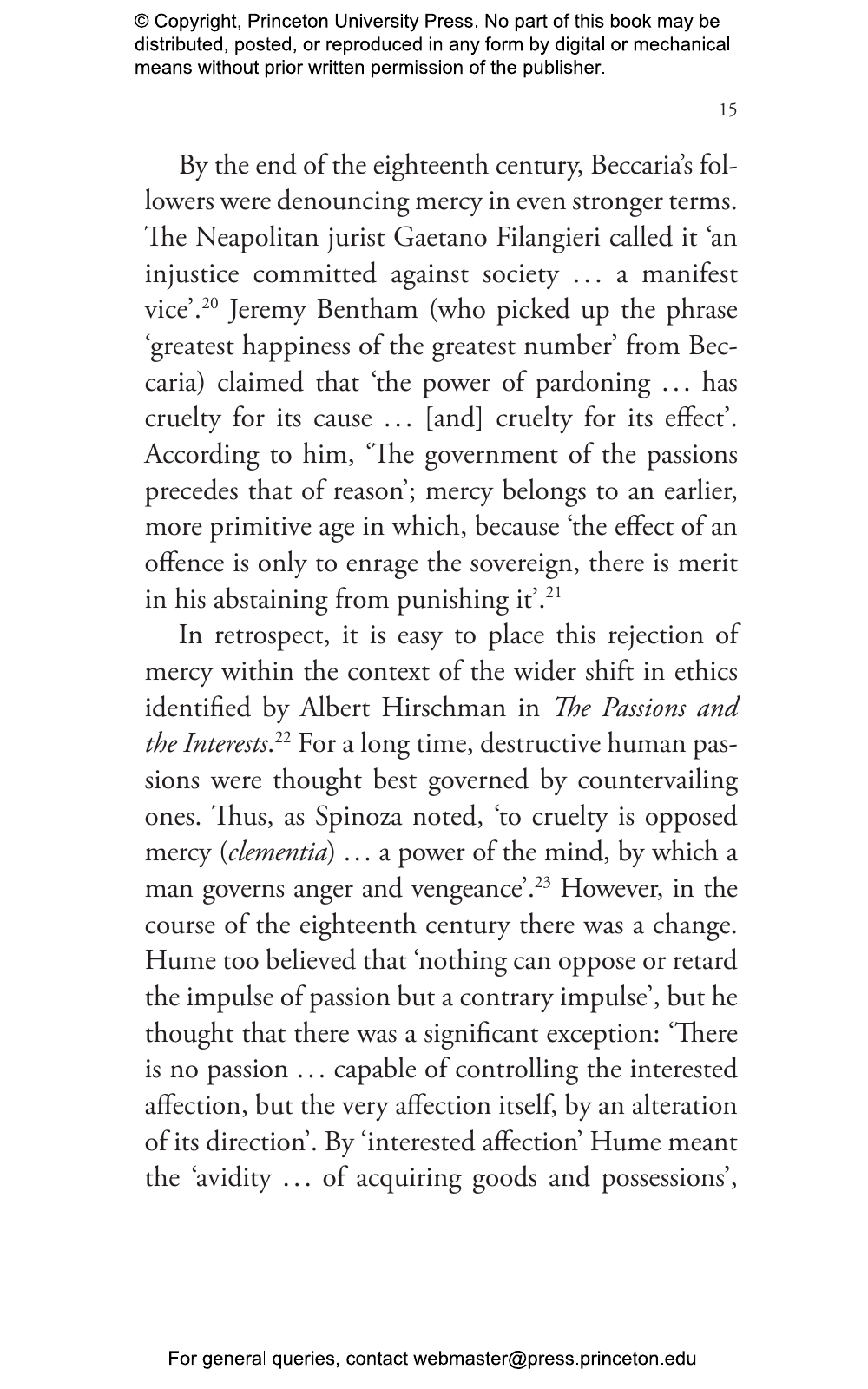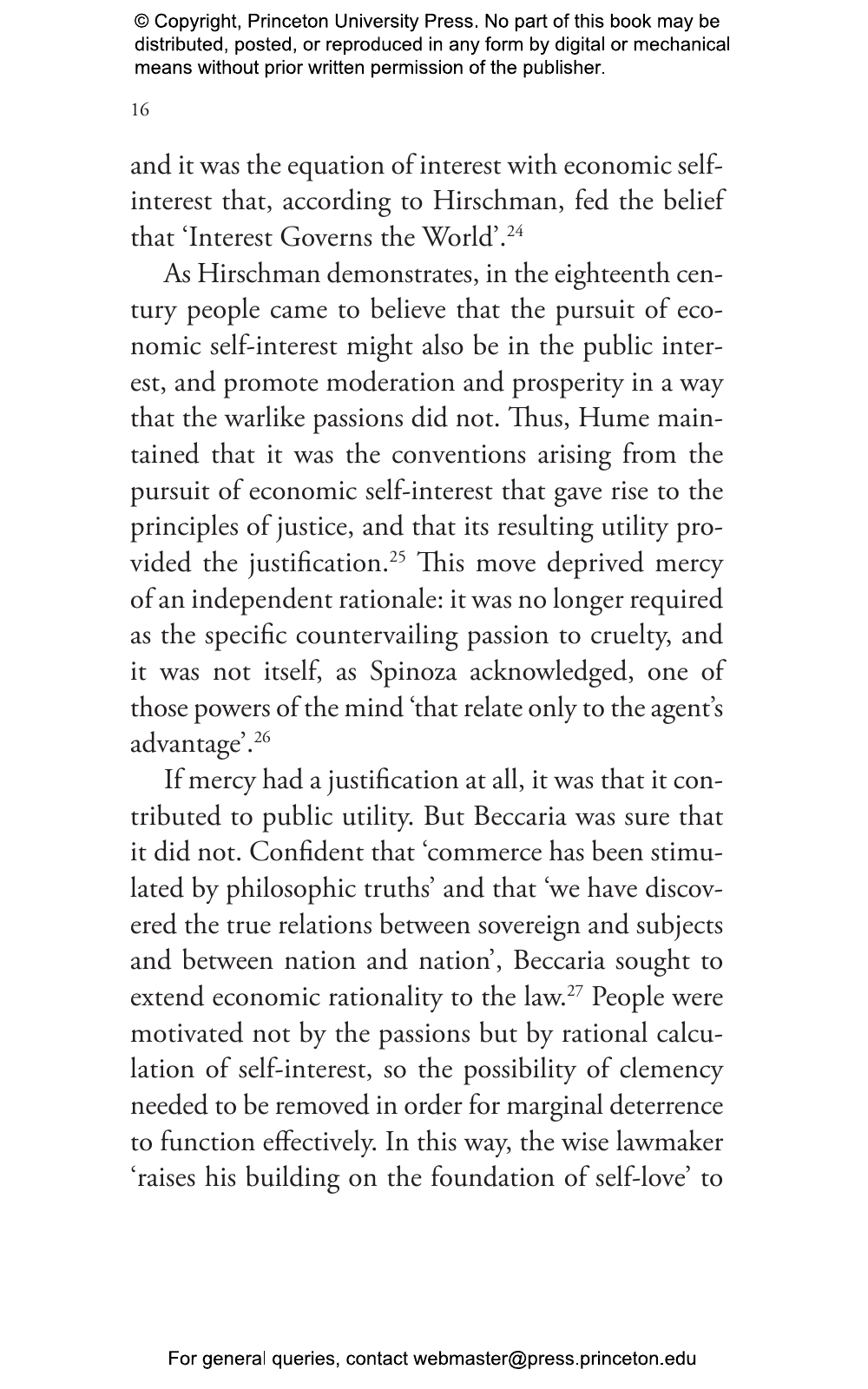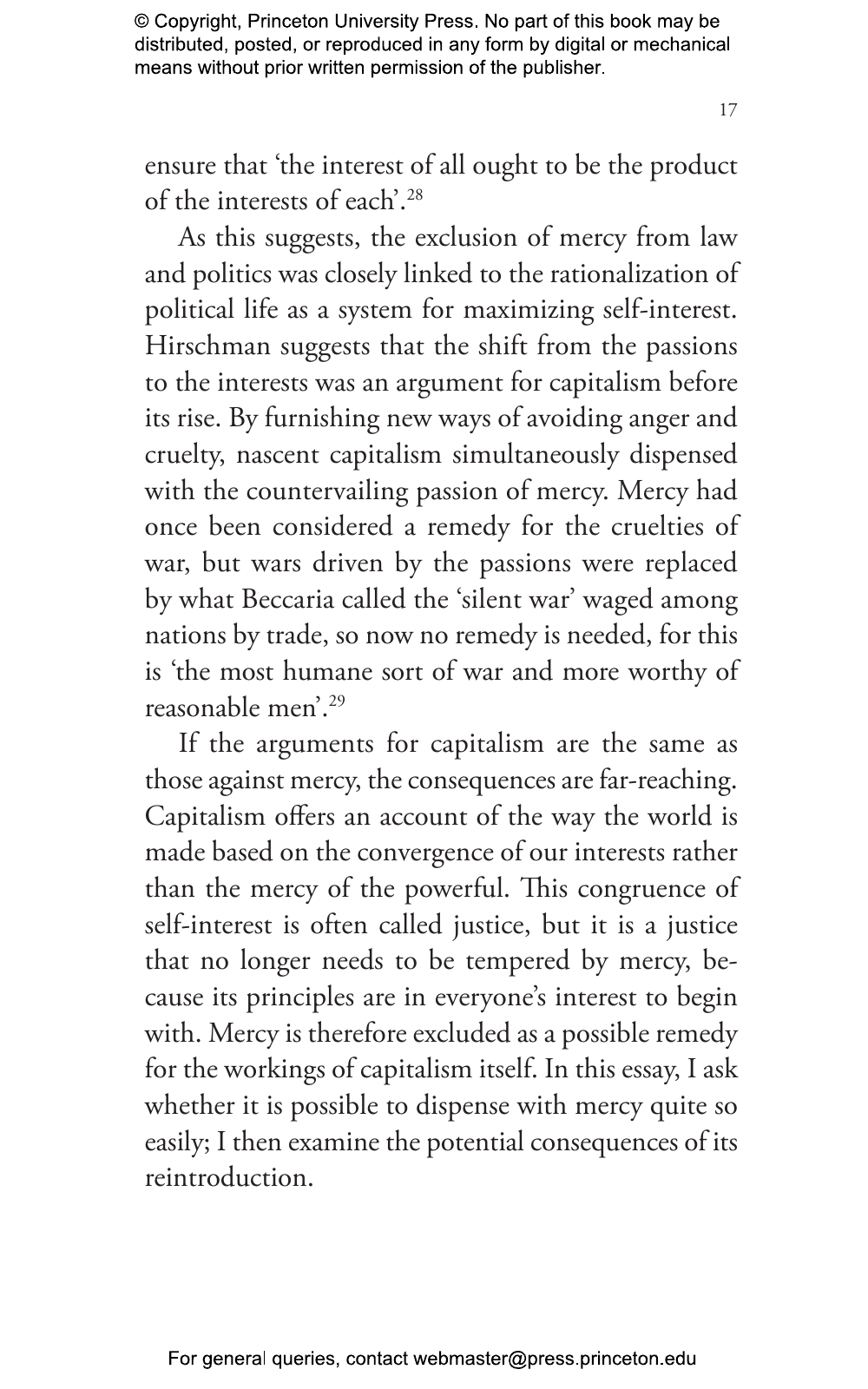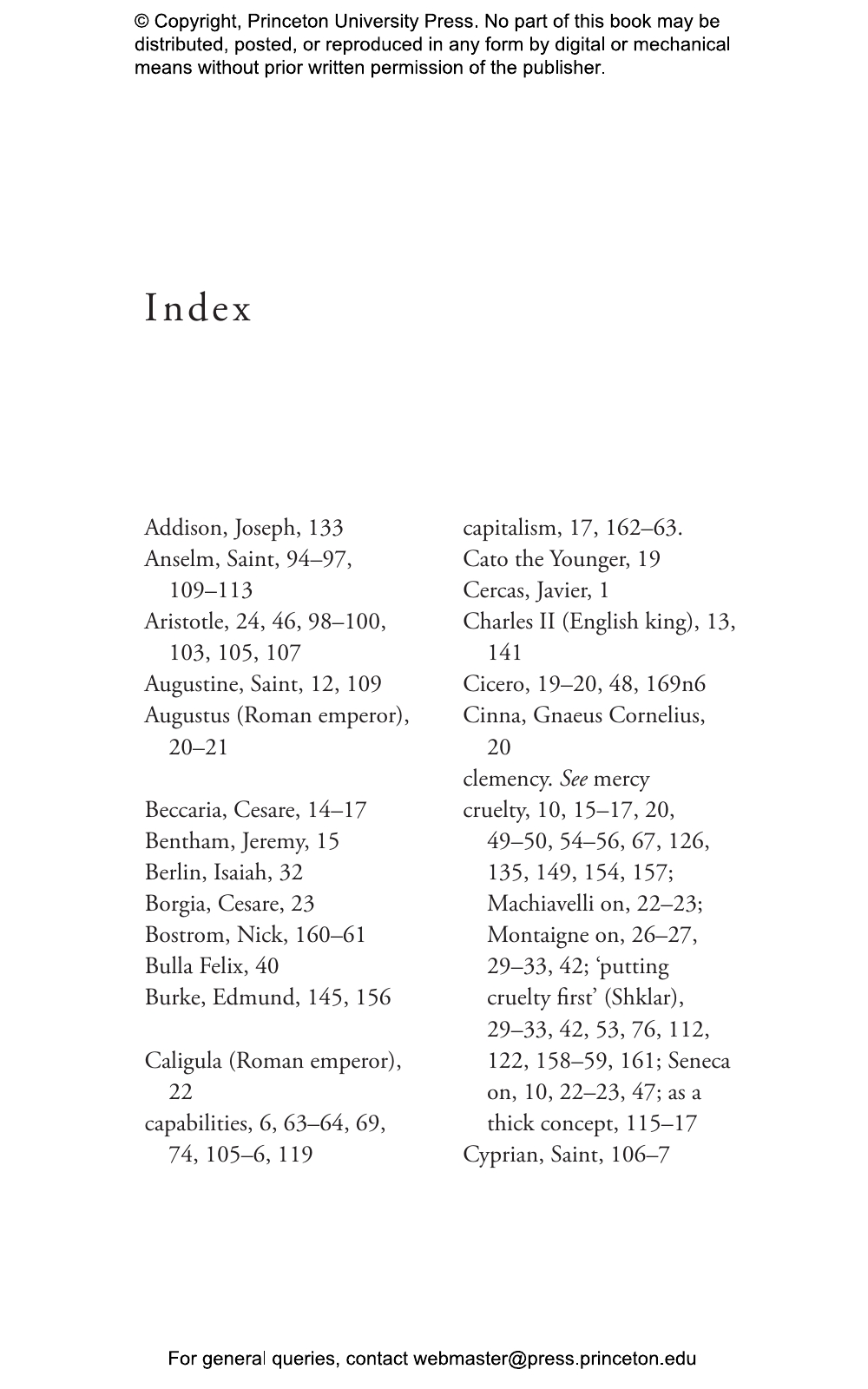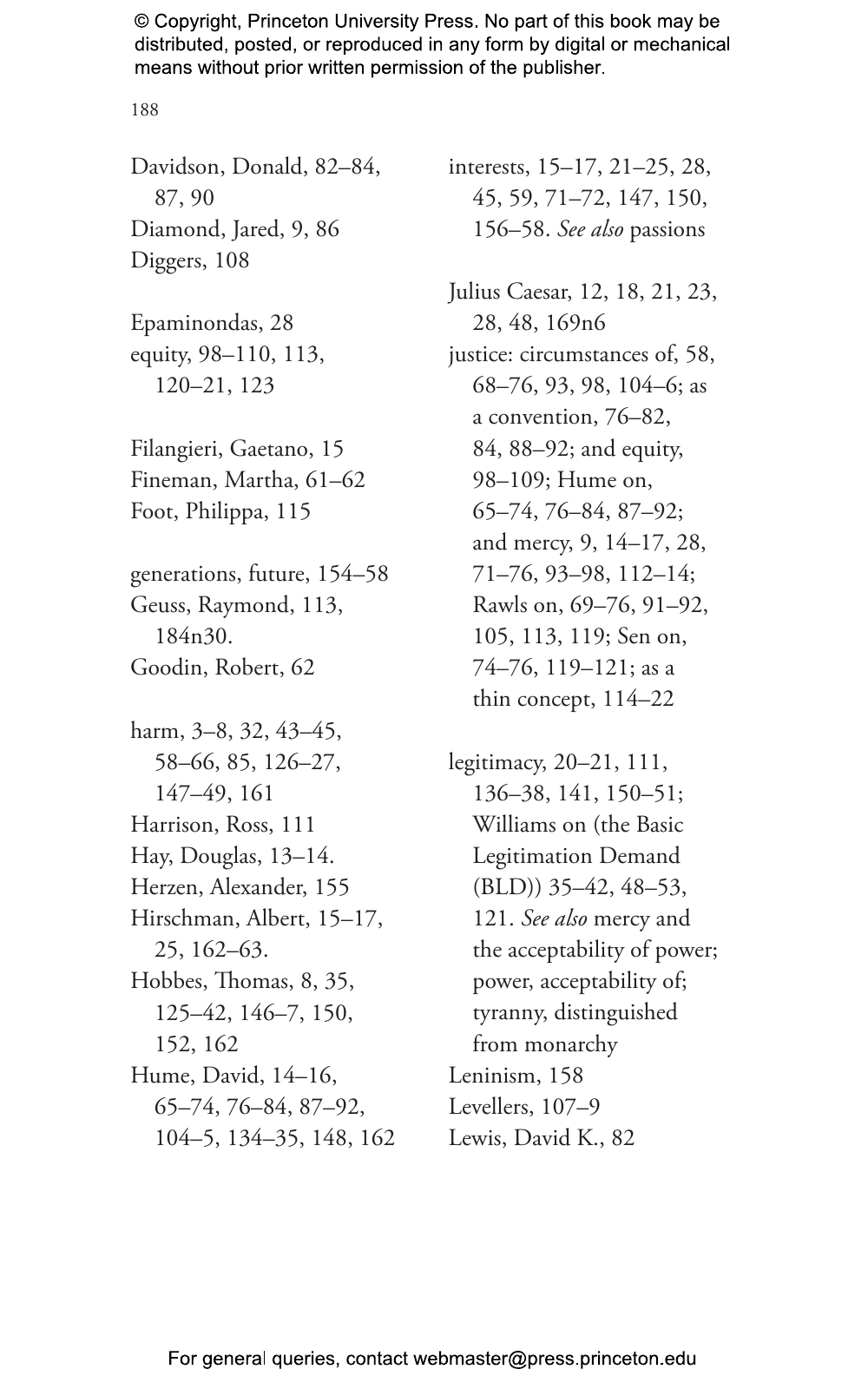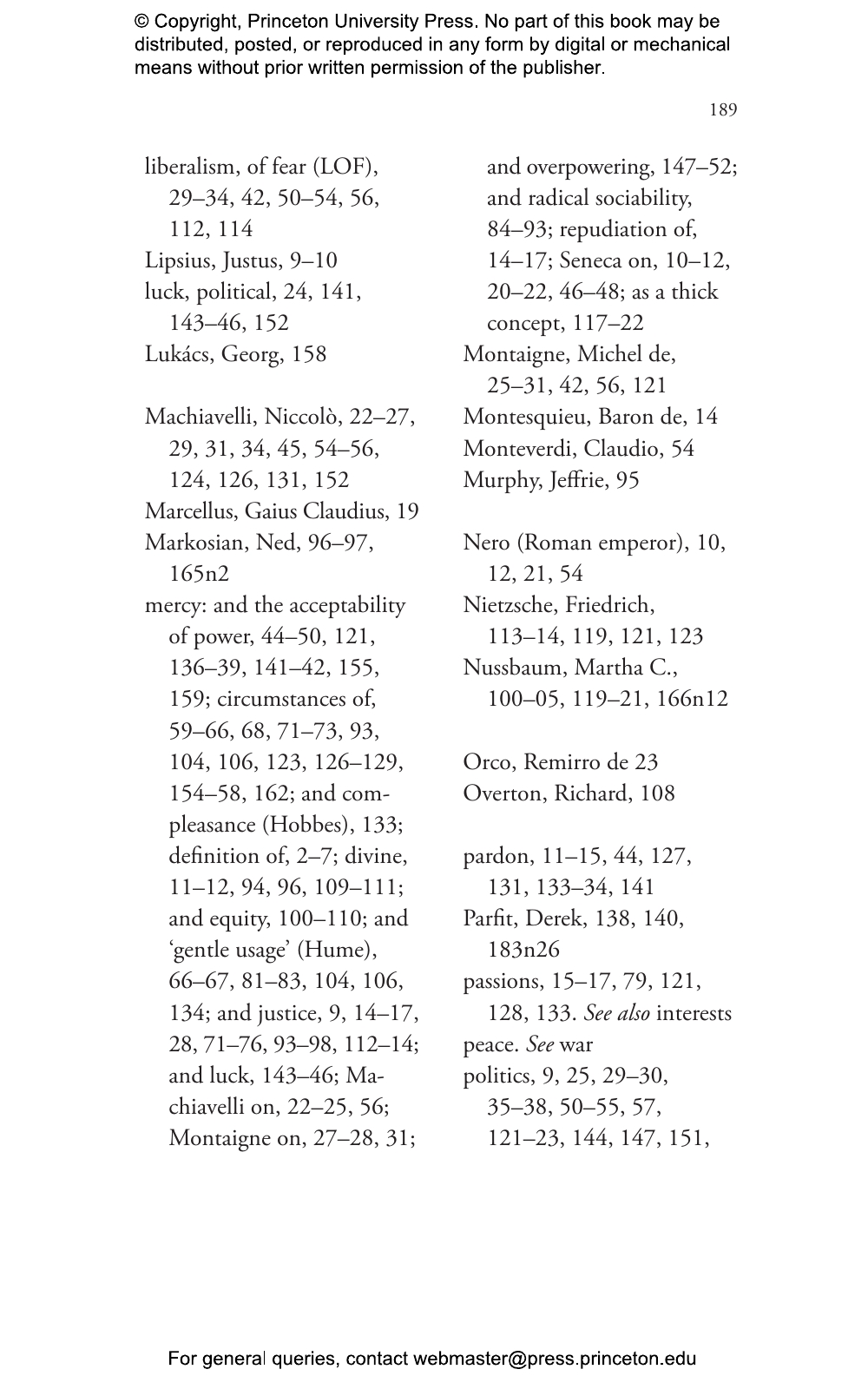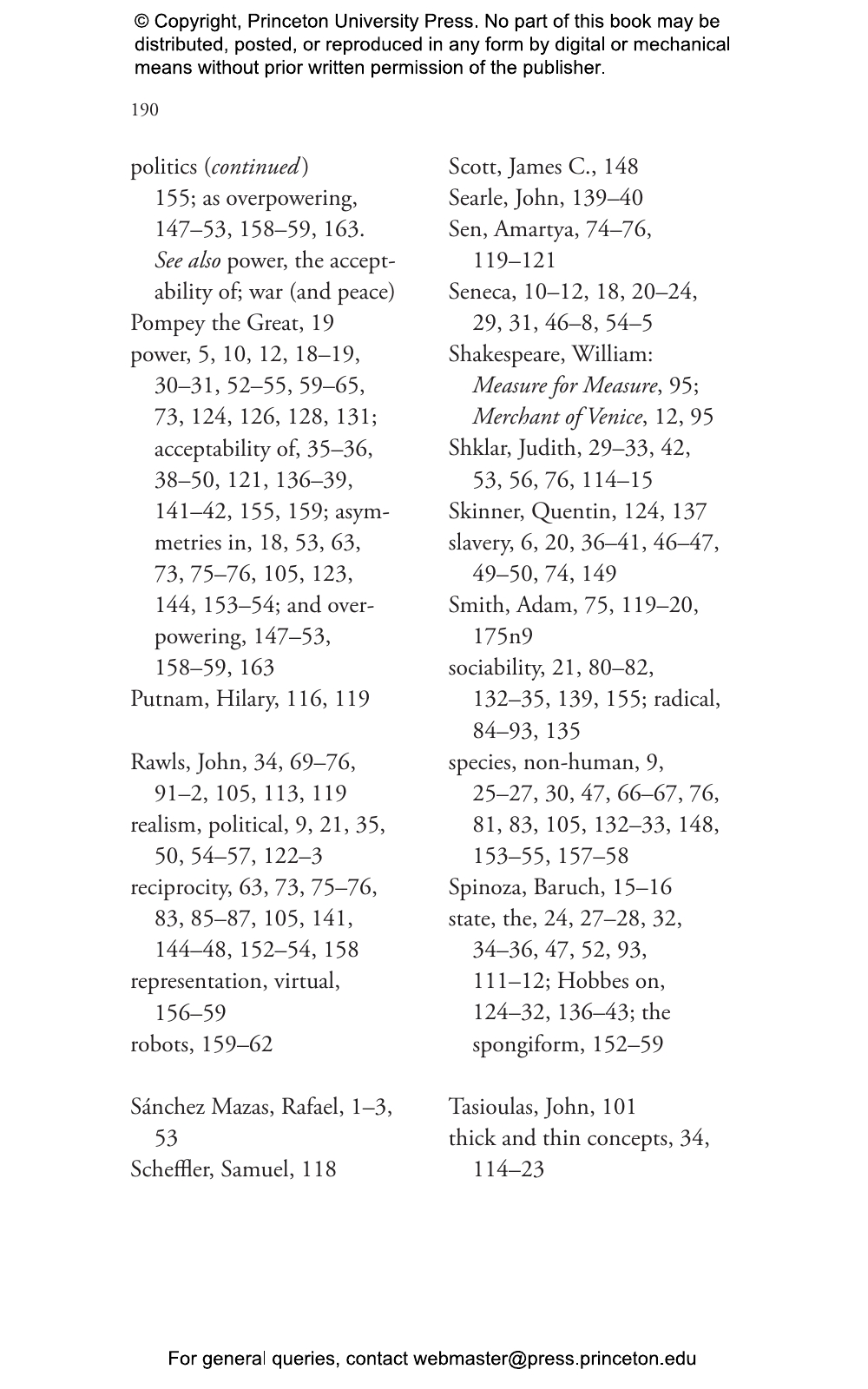Since antiquity, mercy has been regarded as a virtue. The power of monarchs was legitimated by their acts of clemency, their mercy demonstrating their divine nature. Yet by the end of the eighteenth century, mercy had become “an injustice committed against society … a manifest vice.” Mercy was exiled from political life. How did this happen?
In this book, Malcolm Bull analyses and challenges the Enlightenment’s rejection of mercy. A society operating on principles of rational self-interest had no place for something so arbitrary and contingent, and having been excluded from Hobbes’s theory of the state and Hume’s theory of justice, mercy disappeared from the lexicon of political theory. But, Bull argues, these idealised conceptions have proved too limiting. Political realism demands recognition of the foundational role of mercy in society. If we are vulnerable to harm from others, we are in need of their mercy. By restoring the primacy of mercy over justice, we may constrain the powerful and release the agency of the powerless. And if arguments for capitalism are arguments against mercy, might the case for mercy challenge the very basis of our thinking about society and the state?
An important contribution to contemporary political philosophy from an inventive thinker, On Mercy makes a persuasive case for returning this neglected virtue to the heart of political thought.
Awards and Recognition
- One of New Statesman's Books of the Year 2019
"In On Mercy, Malcolm Bull conducts a clever thought experiment on the question of whether mercy might not only be reconciled with justice but could displace it at the center of our political life."—David A. Skeel, Wall Street Journal
"While Bull’s book is charmingly erudite . . . it is also an important work of political philosophy."—Joe Humphreys, Irish Times
"Subtle, scholarly, and interesting. . . .in [this] book, mercy becomes a concept that can illuminate our history, our present, and the dilemmas on the horizon."—Chiara Ricciardone, The Philosopher
"Malcolm Bull’s On Mercy . . . excavates the virtue of mercy as a means to dethroning the supreme values of our age that have failed us."—Thomas Meaney, New Statesman
"Bull’s provocative essay provides fresh insights into some foundational issues in political philosophy and mounts a new and engaging challenge to the dominant justice-centered approaches to politics."—Steven Tudor, Criminal Law and Philosophy
"Bull makes a more far-reaching case, though, than merely to plead for the significance of mercy-considerations to the political arguments of our age. . . . [A] fascinating essay."—Christopher Brooke, Mind
"In short, Bull has given us a fascinating and helpful account of a topic that has been neglected within modern political science. It will repay careful study. And if the going gets difficult, Sunstein’s slim volume will provide light relief."—Jonathan Warner, European Legacy
"In his brilliant treatise On Mercy, Malcolm Bull recuperates this ancient notion, displaced in modern political thought, and powerfully reinserts mercy at the heart of contemporary politics. In a sweeping, masterful, erudite history ranging from Seneca and Cicero through Machiavelli, Hobbes, and Montaigne to Shklar and Bernard Williams, Bull demonstrates that politics, in the end, is nothing more or less than power mercifully exercised. The only way that we, as a society, will overcome the dangers of global climate change or the threat of AI apocalypse will be to adopt a politics of mercy. I urge you to read On Mercy; it is a book for our times."—Bernard E. Harcourt, author of The Illusion of Free Markets
"In this thoughtful and highly original study, Malcolm Bull develops a vision of social life as dependent on humans' willingness to exercise mercy. He shows how this novel approach can serve as a corrective to the traditional excessive focus on the state and on justice, which has been characteristic of some recent political thinking, and how it throws unexpected light on a wide variety of pressing issues in politics."—Raymond Geuss, author of Changing the Subject: Philosophy from Socrates to Adorno
“There’s no one quite like Malcolm Bull. Part of the pleasure of this book is that it leaves readers to do some of the thinking for themselves: it is thought-provoking in just the right ways.”—Christopher Brooke, University of Cambridge
“It’s always a pleasure to be in the company of Malcolm Bull’s mind, and this perceptive and interesting book is no exception.”—Sophie Smith, University of Oxford
